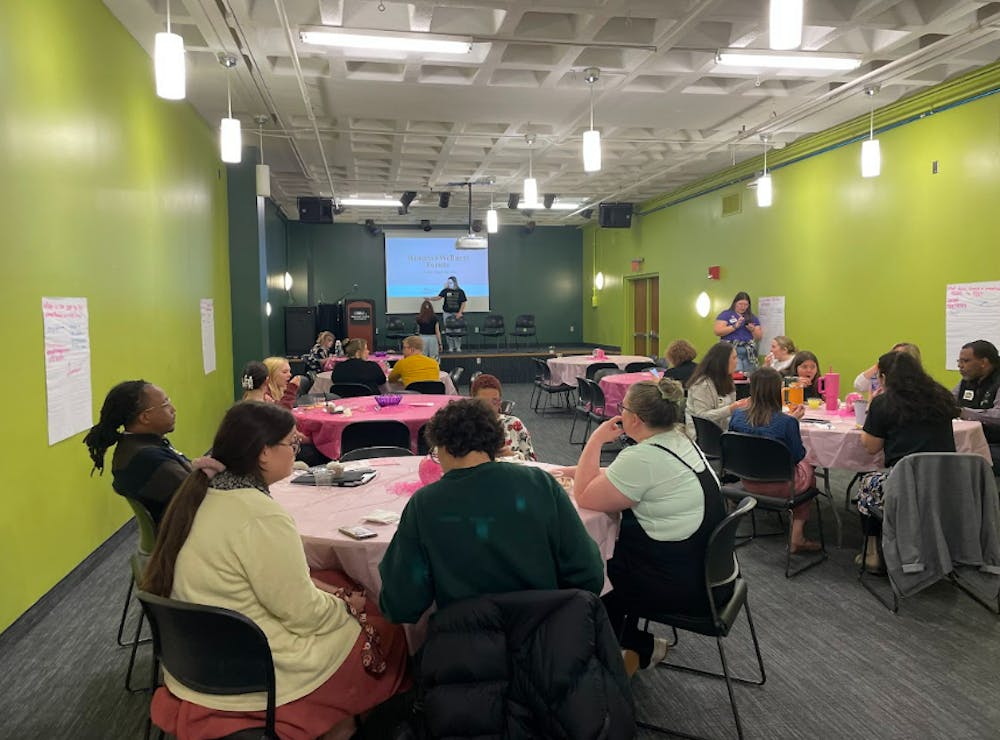Four female leaders from Wright State University offices and organizations spoke as panelists at the Women’s Wellness Forum on March 31, aiming to raise awareness about women’s physical and mental health, foster open conversations and help attendees find a sense of community.
About the event
The College Panhellenic Council, as well as the Women’s Center, Title IX Office and Student Government Association worked together to put this event on.
The forum was held in the Rathskeller Room in the Student Union, where they served free food and refreshments. There was time for attendees to come, get some food and socialize with each other before the panel began.
In addition to the event, they were also hosting a menstrual product drive to help donate to the Women's Center and raise awareness for the SGA's petition to install products. SGA is in the process of campaigning for funding for free menstrual product dispensers around campus in the bathrooms.
Bree Montgomery is a psychology student at WSU and she serves as the Vice President of Internal Affairs for CPH. She shared what the purpose of their event was.
“We wanted to have this forum to raise awareness for women’s health and mental health. It’s important to bring awareness to sensitive topics and to create space to have conversations like this,” Montgomery said.
Meet the panelists
The panel consisted of Amana Koeller, a political science major and the Policy Administrator of SGA; Erin Compaleo, the Assistant Director of Outdoor Recreation; Sara Baker, the Wellness and Health Program Manager and Bobbie Szabo, the Assistant Director of the Women’s Center.
Britin Frazey, the President of CPH and one of the organizers of the event, asked questions. Each member of the panel had an opportunity to respond to these questions, as well as comments from the audience, if they had anything else to add.
These questions led to important conversations about topics such as not being taken seriously in healthcare and getting inadequate care because some healthcare workers do not trust what women are telling them.
“Almost every class, a student will tell me how doctors will dismiss their symptoms or say the problem is all in their head, when they have actual medical conditions that they need help with. Minorities face so many medical and health disparities,” Szabo said.
When people in positions of power or authority are telling you one thing, it can be difficult to speak back to them. However, it is so important to be your own advocate, especially when it comes to healthcare.
“As women, we’re taught not to be loud in these spaces and to listen to the authority of the doctor. Do not be afraid to be loud and demand the care that you need,” Baker said.
One of the big topics of the panel was menstrual health and beating the stigma. So many schools are afraid to teach menstrual health because they think it will encourage sexual activity in teens, but this is dangerous because it leaves so many people uneducated about their own bodies.
Students also do not always have access to menstrual products, which is why they held the drive. SGA is trying to make products more available to students around campus to help with this issue.
It is important to host events like this and give women the chance to talk freely about the issues they face to destigmatize these conversations for the future.
“It’s only awkward if you make it awkward. Over 50% of the population deals with this, it isn’t something that needs to be taboo,” Koeller said.










